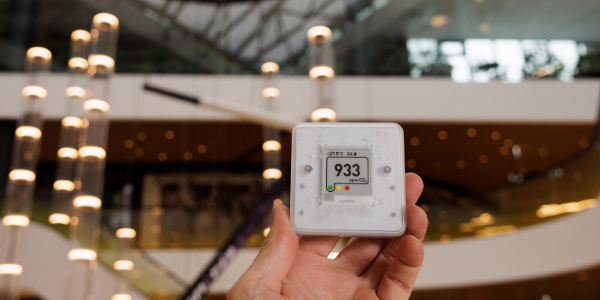The number one rule to ensure you select a building management system that will completely meet your needs is to thoroughly assess what you need or would like it to do. A BMS that suits one building might not quite hit the mark in another building, even if it is used in exactly the same way.
Various factors are key to attaining the optimum building management system. These include the size of the building, the number of occupants and the day-to-day usage of different spaces, as well as the owner’s priorities as to where efficiency gains need to be made, such as saving energy and reducing costs.
It is only by reviewing, assessing, understanding and prioritising these factors that you can be certain your new or improved BMS will meet your needs. And it may well be that an off-the-shelf system cannot meet all of them. However, experienced and expert building controls providers, such as Cube Controls, will be able to create bespoke systems using elements of leading systems from brands like Honeywell, Trend, Priva, Open System Solutions and others.
Below we look at the key utilities and building functions that building management systems can control.
1. Building Management Systems For Lighting
There are several different types of BMS for lighting available, ranging from manually controlled systems to preset systems, which are set to the times when the building is in use.
There are also SMART lighting controls, which use motion sensors and light detection technology to ascertain when and how much lighting is required. From the control of spotlights to dimmers and mood lighting, these SMART systems can go as far as to sense and interact with specific environments, users and other devices, to provide optimum e lighting.
2. Building Management Systems For Heating Ventilation and Air Conditioning (HVAC)
These types of building management systems can control and manage all kinds of heating, air conditioning and ventilation systems. They are able to adapt to the changing seasons, altering temperatures to ensure the comfort of building occupants, as well as monitoring air quality to optimise comfort, safety and wellbeing.
3. Building Management Systems For Plumbing and Electrical Systems
Gas heating systems, water quality, emergency sensors and electrical devices are just some of the services a building management system can test, manage and control, ensuring that all of your building’s plumbing and electrical systems are working as they should.
4. Building Management Systems For Security and CCTV
For most businesses, security is paramount and this applies to both physical security measures, such as CCTV to protect against criminal activity, and technological measures to protect against cyber crime. Having the right type of BMS design will allow you to not only optimise your building’s security, but successfully firewall very sensitive elements of your IT systems, to prevent unauthorised access, snooping or malware, ransomware and Denial of Service (DoS) attacks.
Get in touch with a member of our team today to talk through potential BMS designs and options to meet your needs, from energy efficiency to the integration of wireless technologies and system cyber-security.
Cube Controls is an established and experienced supplier of Building Management Systems, specialising in the design and set up of bespoke environmental and energy control programmes for commercial buildings and property.
To find out how Cube Controls can support you at all stages of design and consultancy, installation and modification and maintenance of your building management systems contact our expert and friendly team on 01903 694279 or sales@cubecontrols.co.uk.




